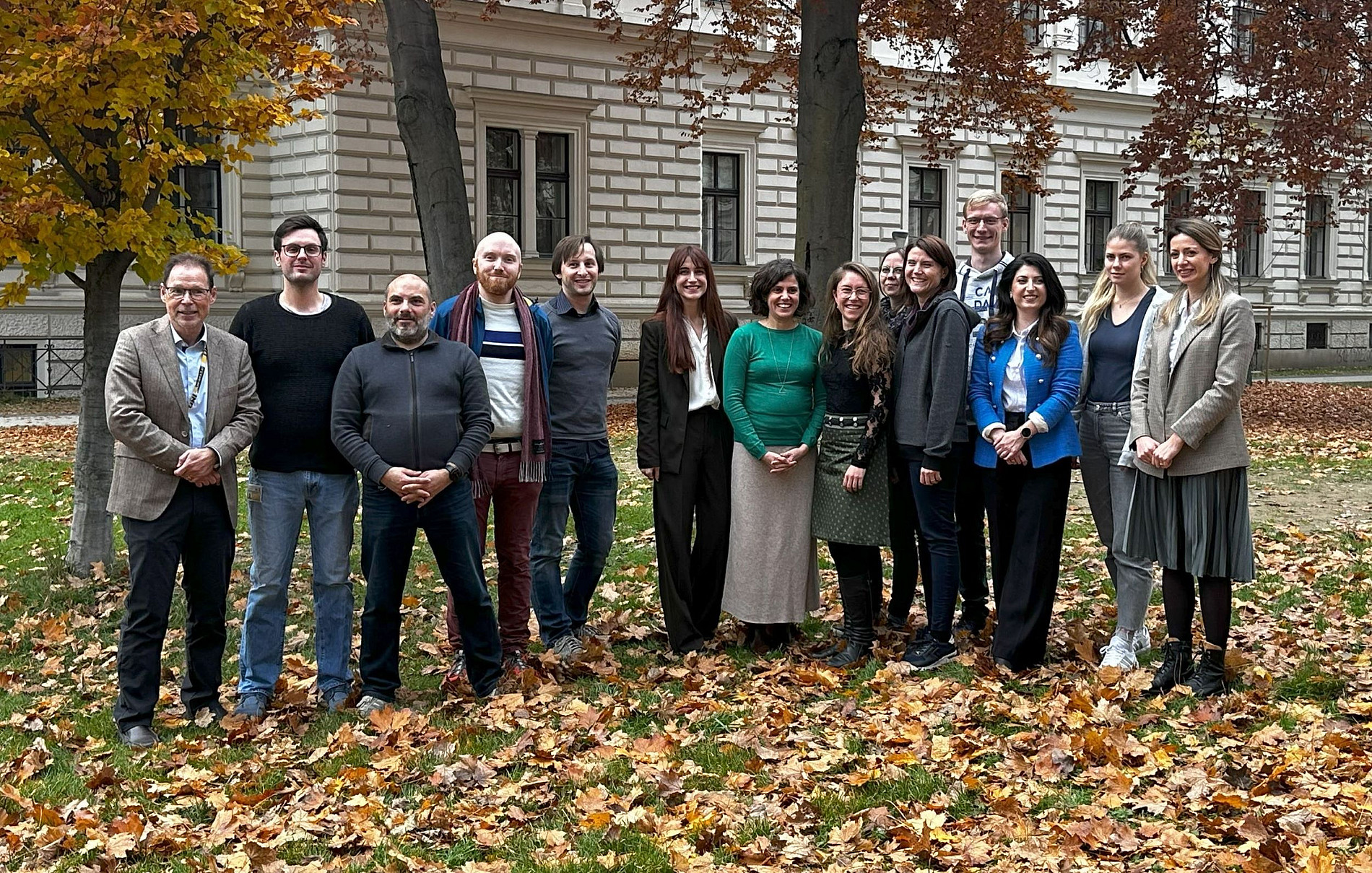
Univ.-Prof. Dr.phil.nat. Andreas Zimmer
+43 316 380 - 8881
Institut für Pharmazeutische Wissenschaften
Derzeit nach Vereinbarung, sowie am 11. und 18. März um 14 Uhr
https://pharmazie.uni-graz.at/de/forschen/pharmazeutische-technologie-biopharmazie/
The research focus of the Institute is based on: Cellular Stress and Tissue Disorders, which in detail include:
- Cardiovascular stress and cytoprotective drugs.
- Anti-infectious and anti-inflammatory drugs
- Cancer drugs
- Pharmaceutical micro- and nano-technology

The main research interest of our group is focused on the development of pharmaceutical preparations for nucleic acids and peptide drugs based on new approaches of pharmaceutical nanotechnology. Biopharmaceutical investigations are focused on the oral uptake route. Further solid state properties of active pharmaceutical ingredients (APIs) are under investigation on thin films.
Nucleic acid drugs such as oligonucleotides, siRNA, microRNA are representing a new class of substances used for several therapeutic targets including metabolic diseases, viral infections and cancer. In contrast to the approach of gene therapy which involves the replacement and substitution of genetic material, antisense drugs or siRNA do not alter or substitute the endogenous genetic material during the antisense therapy. These oligonucleotides are effective blocking agents of the protein expression with a high sequence specificity. Single stranded modified DNA oligonucleotides, siRNA and microRNA are often used in our trials.
The latest improvements in drug delivery and drug targeting are Protamine-Oligonucleotide-Particles - so called Proticles. These colloids are potent transport vehicles for oligonucleotides as well as for peptides and proteins. Several co-operations are initiated with other research groups to investigate the purpose of these promising nanoparticles.
Biopharmaceutical investigations include permeability and cytotoxicity studies of nanomaterials across the oral mucosa including the GI tract. Further, thin films of APIs are prepared on surfaces to manipulate the APIs solid state properties including dissolution behavior and stability. Surfaces under investigation include state of the art biodegradable films like cellulose or chitosan as well as model substrates like single crystal mica or single crystal NaCl allowing to answer fundamental and application relevant questions. API deposition techniques involve solution casting as well as physical vapor deposition. Atomic force microscopy and gracing incidence diffraction are employed besides standard techniques on these thin films which may be as thin as a molecular monolayer up to large crystal domain.
- Pharmaceutical nanotechnology: The projects are funded by the Austrian Nano-Initiative, the FWF and the FFG. The projects are organized by www.bionanonet.at. New peptide-based delivery systems are being investigated as drug delivery systems and diagnostics. These nanoparticles are called proticles (protamine oligonucleotide particles) and are an interesting new delivery approach for antisense compounds, siRNA, peptides and proteins. Current projects include stem cell tracking, VIP depot formulations for lung delivery and are part of nanoHealth.
- Cellular assay systems are being developed specifically for siRNA constructs bound to proteins as carriers. The down-regulation of protein levels is being investigated in a brain tumor model. Wolfgang Sattler and Eva Bernhart, Medical University of Graz, are working on this project. The work is funded by the FFG Bridge Program.
- Pharmaceutical Engineering is the topic of the recently founded Competence Center RCPE. The projects focus on upscaling the production of nanoparticles, protein formulations and new drug delivery systems based on cellulose.
- EuroNanoTox is a project coordinated by BionanoNet. Our contribution is based on the literature databases and in-vitro toxicity tests for drug formulations provided by nanoTRUST.
- Depot formulations for colloidal drugs and special micropellets are a new field of research founded in Graz. Drug formulations based on lipophilic matrices dispersed in thixotropic liquids are currently being investigated.
- The antisense therapy with drug delivery vehicles of our group is combined with new strategies of photodynamic therapy against tumors. This project was part of the Pharmacy DFG Research Training Group at the Biozentrum Frankfurt together with Manfred Schubert-Zsilavecz and the ILM, Ulm.
Sai Kirran ARJI
Sarah ABOU-AHMED
Kristian RADMAN
Gregor ZUPANCIC (CPE Master's program)
